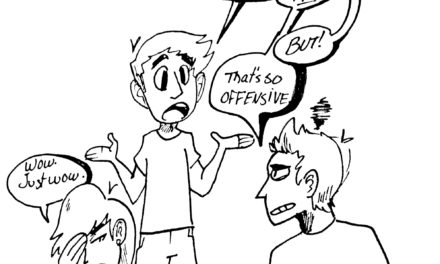Last week, Emory re-instilled the sense of pride that most people felt before the news of the SAT scandal and department cuts broke out. Emory acknowledged and apologized for the anti-Semitic practices of the dean of its Dental School between 1949 and 1959, which saw Jewish students being flunked out of the Dental School or asked to repeat a year despite respectable results.
In the late 1940s, Emory’s Dental School had a dean, John Buhler. John Buhler flunked numerous Jewish students and asked many to repeat years at the Dental School. In fact, one student, Ronald Goldstein remembered Buhler saying that Jews did not have the hands to be dentists. For a long period of time, this pattern was observed, but Emory denied any allegations of anti-Semitism.
Six years ago, Perry Brickman, one of the students who was expelled from the Dental School, began to collect material on and interview Jewish students who bore the brunt of Buhler’s anti-Semitic practices. This film was screened at Emory on the 10th of October and prominent members of Atlanta’s Jewish community were present. Perry Brickman received a glorious standing ovation and the response to the film was almost as if the Jewish students of the Dental School had scored a victory.
Through the film, it was unraveled that many students that had been flunked out did not tell their families about it for decades.
In fact, parents of some of these children refused to believe that a prestigious institution like Emory could engage in anti-Semitic practices.
Emory University denied this aspect of its history initially but this administration has been extremely forthcoming and agreed that it was important for this history to be acknowledged. President Wagner apologized on behalf of the university and one of the most important remarks he made in his address were that we must learn not only from the good aspects of our history but also the bad parts. It was a proud moment for the Jewish community and all of us, who form the Emory community. Many institutions have aspects in their history that they are not particularly proud of, but few institutions apologize for these mistakes in public.
On reflection, some individuals might feel pride for Emory after hearing about this and some might be critical of Emory, saying that the school should have acknowledged their faults a long time ago.
It is easy for us to make judgments about Emory’s past practices based on its current values. It is important to understand that some of our current practices might be deemed unacceptable five decades later. Hence, we should accept Emory’s history, feel for the students who were unable to complete their education here and very importantly, accept President Wagner’s apology.
Aditya Mehta is a College junior from Mumbai, India joint majoring in Sociology-Religion.
The Emory Wheel was founded in 1919 and is currently the only independent, student-run newspaper of Emory University. The Wheel publishes weekly on Wednesdays during the academic year, except during University holidays and scheduled publication intermissions.
The Wheel is financially and editorially independent from the University. All of its content is generated by the Wheel’s more than 100 student staff members and contributing writers, and its printing costs are covered by profits from self-generated advertising sales.



